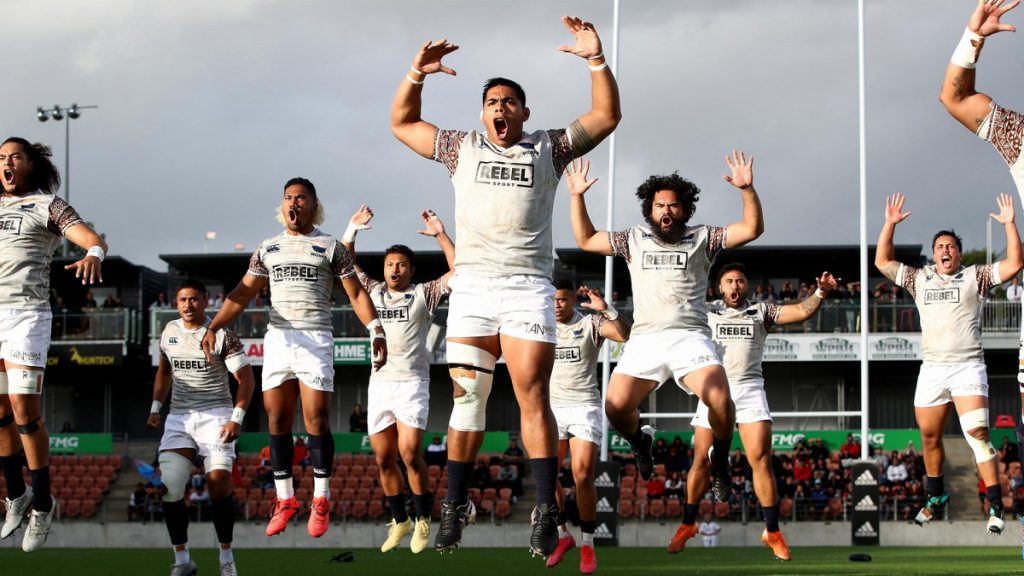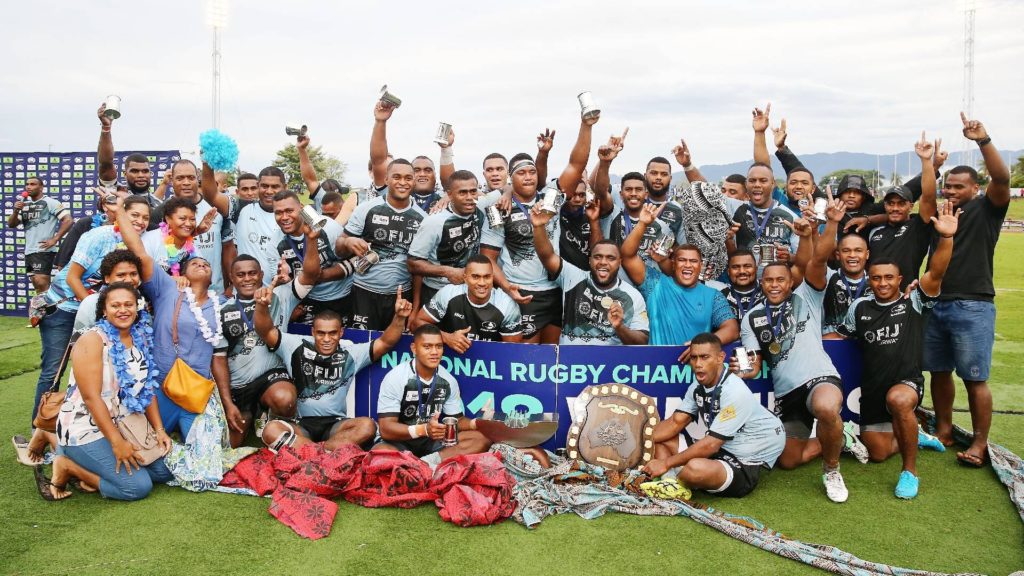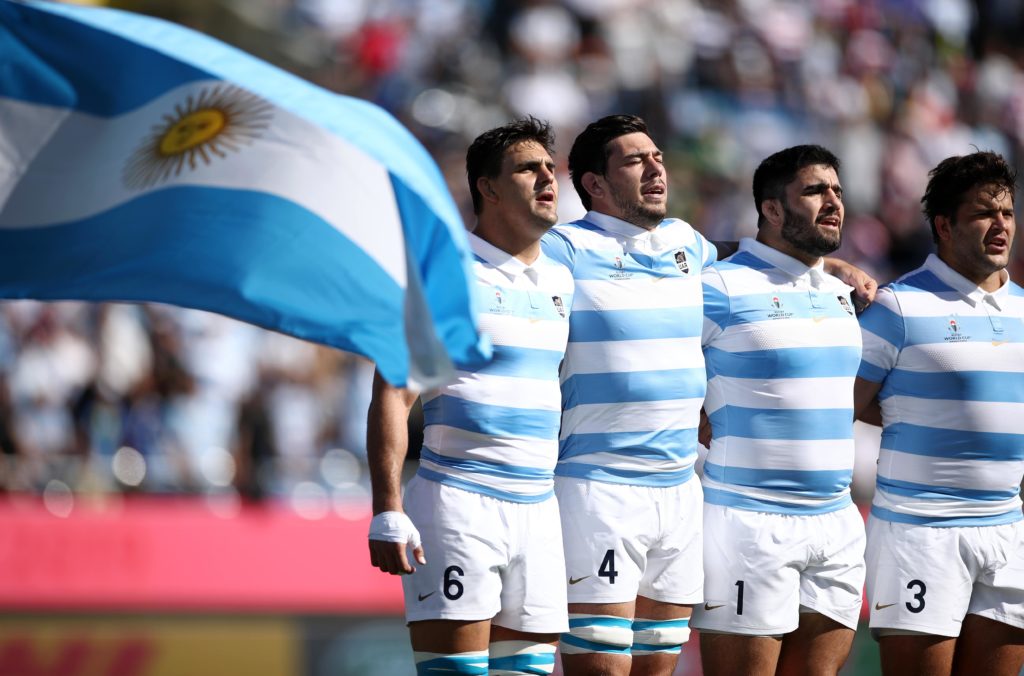Now is not the time for regret or bitterness. The decision to grant Moana Pasifika and Fiji Drua conditional licences to enter Super Rugby next year is a moment to celebrate and one which puts the focus firmly on the future.
The Pacific Islands finally have a presence in professional club rugby and with that, a chance to retain some of the hundreds of players all three seemingly produce at will.
No longer will Fijians, Samoans or Tongans have to pack up their lives and ship out to Europe or Japan or to New Zealand and Australia in search of professional club contracts.
The best talent in the Islands can now stay in the Islands and be paid well to play in Super Rugby. Not every Islander will now be forced to be a rugby Pilgrim and the hundreds of thousands of people who identify as Pasifika, will at last have a sense of ownership and belonging in a sport that owes an almost unpayable debt to three tiny islands in the South Pacific.
But the past is not something that can be ignored at this juncture. It sits as the beacon by which the future must be guided because for all the hope that Moana Pasifika’s birth brings, it is not of itself a panacea to all the ills affecting the game in the Islands.

Moana Pasifika is the first step towards meaningful change. As former All Black and current NZR board member, Sir Michael Jones, says: “I still remember coaching Manu Samoa in 2003 and saying very clearly that if we don’t include Manu Samoa in Super Rugby we will be talking about this in 20 years. And we are, but thankfully we have got a solution now, it is not a full solution though.”
The creation of Moana Pasifika and invitation to Fiji Drua to join Super Rugby is a strong start towards the ultimate goal of elevating the three Island nations into serious international contenders.
Former All Black and Manu Samoa coach Sir Bryan Williams, who has been heavily involved with Moana Pasifika, made a passionate speech the day the licence was awarded, outlining his sadness that having made the quarter-finals of the 1991 and 1995 World Cups, Samoa now languish at 14 in the World Rugby rankings.
Being kept out of Super Rugby derailed Samoa – saw them go backwards at an alarming rate. Which is the same for Fiji and Tonga, neither of whom have been able to advance the way they had hoped in the last 25 years and that won’t happen until all three nations have access to regular, meaningful test programmes.
It’s hard for players to say no to the All Blacks where they can earn $7500 a week and be certain of playing the best teams in the world, compared with the irregular and sporadic tests offered to the Island nations and match fees that are tiny.
Moana Pasifika is essentially going to be a pathway for Samoan and Tongan qualified players. The recruitment drive will focus mostly on players currently in the Islands and on players who might be contracted in New Zealand and Australia but whose eligibility has not yet been captured.
Those who sign will do so with the intent of committing to play test football for either Samoa or Tonga, but unless there are regular tests for those nations, there will continue to be a real danger that those with dual heritage – and there will be many – opt to play for the All Blacks or Wallabies instead.
That’s the reality at the moment, as evidenced last year when both Hoskins Sotutu and George Bower were approached by Fiji but turned down the offer to take up spots with the All Blacks.
It was the same with Sevu Reece in 2019 and in fact, the only dual qualified player to turn down the All Blacks was Alapati Leiua – who was going to be selected by Steve Hansen in 2013 but committed, instead to Samoa where his brother Ofisa Treviranus was the captain.
It’s hard for players to say no to the All Blacks where they can earn $7500 a week and be certain of playing the best teams in the world, compared with the irregular and sporadic tests offered to the Island nations and match fees that are tiny.

The whole picture needs to change, not just the club scene. New Zealand Rugby chief executive Mark Robinson says: “What this does offer is the assembly of two teams, in regular, high-level competition where they get all the high-level preparation exposure to high performance conditions so that when they transition into international rugby they are hopefully better prepared.
“But it will take more than just Super Rugby to build our broader vision for what the international game can be like for those emerging nations. We haven’t really ever stopped work at looking at competition models and calendars that provide pathways for those emerging teams and that won’t stop.
“I talked to Alan Gilpin [head of World Rugby] about this this morning. They have put some revenue towards making this happen and are committed to this being a success and they know they have to work harder at providing those opportunities.
“He’s new and is bringing a new approach to the opportunities he thinks exists for rugby and he’s engaged with emerging nations around the world.
“Bill Beaumont stood on a mandate of wanting to do more in this space. Everything at the moment, maybe its Covid and a change in World Rugby, there is new impetus in all this.”
it will take more than just Super Rugby to build our broader vision for what the international game can be like for those emerging nations. We haven’t really ever stopped work at looking at competition models and calendars that provide pathways for those emerging teams and that won’t stop.
NZR chief executive Mark Robinson
What the Islands have learned – the hard way – is that they can’t take anything for granted.
Williams says that in 1995, he wrongly assumed Samoa, having been part of the fore-running Super 10 competition, would be invited into Super 12 especially after reaching the last eight of the World Cup that year.
The hurt of rejection still lives with him and hence he knows that good intentions don’t lead to definitive action. Part of the issue is that there has long been blurred lines in where responsibility sits in regard to finding regular tests for emerging nations.
When Argentina made the semi-finals of the 2007 World Cup and quarter-final in 2011 without a place in any regular competition, World Rugby effectively suggested the Pumas were SANZAR’s problem to fix.
In respect of the Island nations, the governing body can’t absolve itself of responsibility in finding fixtures and income for Fiji, Samoa and Tonga.
SANZAAR, now with Argentina as a member union, can’t incur all the risk and expense of building a competition to accommodate the Island nations.

None of them are ready yet to cope in the Rugby Championship. That will take time. Being part of Super Rugby will build professional habits and improve the skills and conditioning of the playing base, but all three nations are going to also need exposure to test football before they are thrown into something as intense and as demanding as the Rugby Championship.
As Jones says: “How World Rugby responds and how they get on board, it is really in their court. They have got to walk the talk, whatever that looks like and make sure this thing succeeds because we can’t have it not succeed.”
What everyone would like to see is Fiji, Samoa and Tonga be built into the July test window once COVID restrictions end and travel becomes easier. Why, for instance, couldn’t the Northern Hemisphere sides be scheduled to play one test in the Islands on route to New Zealand or Australia?
And could World Rugby help fund a second tier Rugby Championship featuring Fiji, Samoa, Tonga, Japan and the USA with a view to working towards a relegation-promotion scenario or even an expanded competition that works in two pools.
Whatever the case, the point is indisputable that the Islands need test rugby built into their landscape just as much as they needed a presence in Super Rugby.
I think it has the ability to gain a lot of interest from a broader fan base not just in the Islands in NZ and Australia but in Hawaii and the West Coast of the USA as well and I think it will be every rugby fan’s second favourite team
Sir Michael Jones
And just as important is that they don’t have to wait another 25 years for change to come. World Rugby has a history of moving at a glacial pace, but that’s not an option in this scenario.
Moana Pasifika and Fiji Drua will fail without the subsequent breakthrough on the international front.
What provides hope that change will come quickly is that Moana Pasifika may prove to be a roaring commercial success and if the dollars come rolling in, the appetite to bring the Island nations into the international fold will increase.
“I think it has always been seen as a movement that is going to be bigger than a rugby team,” says Jones. “It has got the ability to bring communities with it and be a celebration of culture and all things Pasifika and there is a great opportunity to wrap that all up in a professional rugby team.
“That is something we have never seen before in terms of a unique offering in professional rugby.
“I think it has the ability to gain a lot of interest from a broader fan base not just in the Islands in NZ and Australia but in Hawaii and the West Coast of the USA as well and I think it will be every rugby fan’s second favourite team.”



Comments
Join free and tell us what you really think!
Sign up for free